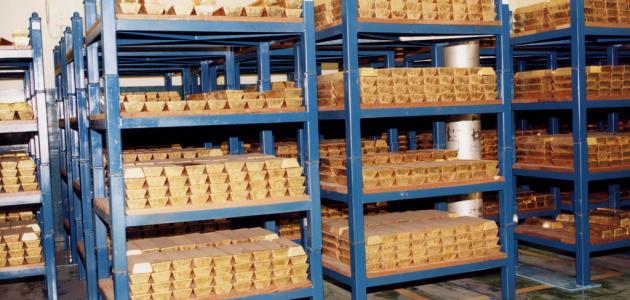Definition of capital
Capital is the wealth that constitutes a type of asset, and is used to indicate the financial strength of enterprises or individuals. Capital is defined as the money used to create more wealth, or start a new project. Another definition of capital is money or other property owned by individuals or establishments. Capital is used for the purpose of establishing an institution or company, or to invest it in various fields.
Capital characteristics
Capital is characterized by a set of characteristics, and the following is information about the most important of them:
- Capital is one of the products of human labor. It is a type of capital, such as buildings, machines, and other human production.
- Capital is one of the negative factors of production. Capital cannot provide any production unless there are activities that support it. For example, to create a building, there must be workers capable of construction. Therefore, capital cannot produce anything on its own.
- Capital is one of the variable means; That is, it is not possible to change the value of the total supply of devices, but it is possible to change the value of the supply of capital in terms of increase or decrease.
- Capital is affected by decline; Its continued consumption leads to a decrease in its value.
- Capital is part of the stock of labor; Where capital is used by its owners to gain wealth, capital accumulates as a result of saving, and then part of it is spent on consumer products, while the remaining part is preserved.
- Capital accepts destruction; It is possible for all capital products to be destroyed due to their permanent use, such as the end of the lifespan of the machines and vehicles used in the company.
Types of capital
Capital is divided into a group of types, namely:
Read also:Definition of central bank- Debt Capital: It is the capital that a business obtains; By relying on debts, whether from private sources such as insurance companies and financial institutions, or public sources such as loans.
- Equity Capital: It is capital that depends on financial investments that do not need to be repaid. These investments include what employers provide and contributions for selling inventory contents.
- Working Capital: It is the difference between the institution's current assets and current liabilities, and this capital is used as a measure of short-term corporate liquidity. That is, companies that contribute to covering their debts and other obligations due during the year.
- Commercial capital (in English: Trading Capital): It is the capital that is used to refer to an amount of money that has been allocated for the buying and selling operations of various securities. It differs from investment capital because it is reserved for the most unexpected projects. Commercial capital is sometimes called financing.
- Additional Paid-In Capital: It is an account located in the property rights section of the facility's balance sheet, and it represents the additional financial amount paid for the company's shares according to their nominal value. This type of capital only appears when an individual buys shares directly from the facility.
Capital functions
Capital contributes to providing many useful functions for various enterprises, the most important of which are:
Read also:What does money laundering mean?- Supply of raw materials: It is the role of capital in providing supplies of raw materials; Each business sector must obtain a sufficient quantity of raw materials, which are characterized by having good quality.
- Supply of devices and machines: Capital contributes to providing appropriate equipment and tools for the production process.
- Subsistence provision: By providing the means of living for workers while they carry out the production process, such as providing work clothes, meals, and other necessary things.
- Providing means of transportation: This is so that customers can benefit from it. Such as trucks and railways.
- Attracting workers and employees: Capital contributes to providing job opportunities for employees and workers, and this function of capital is one of the important functions within most sectors of the economy. Whether developing or developed, it may also be one of the determinants affecting the employment rate in a particular country.
The importance of capital
Capital is one of the important components of enterprises. Because of its vital role in the production system, which enhances its importance, which is summarized according to the following points:
- Contributing to providing the foundations of production: It is one of the necessities of having capital to support production. As it is difficult for any facility to implement production without capital; Materials and products can only be provided through the use of machines and tools.
- Supporting increased productivity: With increasing technological development, capital has become a means of producing many goods. The high rate of productivity was associated with the continuous use of capital.
- Participation in economic development: It is the importance associated with the strategic role of capital. It has a central position within economic development. Capital accumulation is the core of the development of the economic sector, which contains many capitals, such as dams, factories, bridges, ports, irrigation works, and others.









